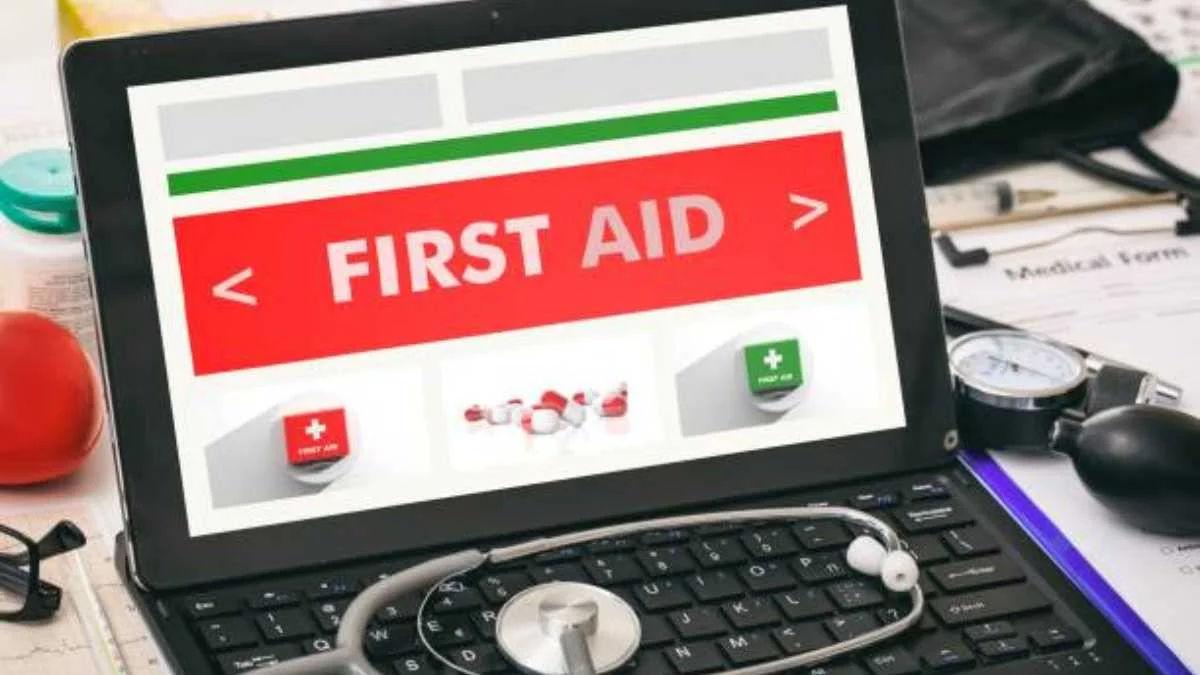HEALTH AND FITNESS
What Are the Different Levels of Online First Aid Training?

Introduction
According to the American Heart Association, about 39% of people feel confident enough to step in and help during a first aid emergency. But acting right away can make a huge difference in someone’s chances of recovery. So why don’t more people help? One big reason is the lack of training.
Online first aid courses have made learning easier and more accessible. But not all courses are the same. Some are quick overviews. Others go into more detail and lead to official certifications. The type of training you need depends on your goals.
You may be a parent who wants to feel more prepared. You could manage safety at work. Or you may want to learn how to help in an emergency. No matter your reason, it’s important to understand what each course offers. Let’s walk through the different levels of online first-aid training and help you figure out which one fits you best.
Table of Contents
Understanding the Importance of Online First Aid Training
Learning first aid equips individuals with the ability to respond to emergencies quickly and effectively. From minor injuries like sprains to critical events such as cardiac arrest, trained individuals can bridge the gap before professional help arrives.
Why online training matters
The rise of e-learning has revolutionized how we acquire new skills. Online first aid training allows learners to:
- Study at their own pace, accommodating busy schedules
- Revisit learning modules to strengthen understanding
- Gain access to an internationally recognized certification without attending physical classes
Professional relevance
Employers across sectors are increasingly prioritizing health and safety awareness among their teams. Online courses aligned with Health and Safety Executive (HSE) or OSHA standards can:
- Help meet legal workplace safety requirements
- Reduce liability in case of workplace accidents
- Enhance employee confidence and morale
Whether you’re seeking compliance or want to be prepared, online first aid courses provide a practical, affordable, and effective learning solution.
The Main Levels of Online First Aid Training
Online first aid training is typically categorized into four key levels, each tailored to specific skill requirements and job roles.
Level 1: Basic First Aid Course
This entry-level course is ideal for the general public. It covers:
- Minor cuts, burns, and bruises
- How to manage nosebleeds and fainting
- Assessing the scene for safety before helping
Best suited for parents, school staff, office employees, and caregivers who want essential first aid knowledge without clinical responsibilities.
Level 2: CPR and AED Training
This level introduces life-saving interventions such as:
- Cardiopulmonary Resuscitation (CPR) for adults, children, and infants
- Automated External Defibrillator (AED) usage
- Choking response techniques
Best suited for lifeguards, fitness instructors, teachers, and sports coaches. Many workplaces also require this as a mandatory component of health and safety.
Level 3: Emergency First Aid at Work (EFAW)
A slightly more advanced module focused on common workplace emergencies:
- Managing unconsciousness, seizures, and bleeding
- Legal duties and first aider responsibilities
It is often the minimum requirement for employers under UK HSE regulations.
Level 4: Advanced First Aid and Remote First Aid
It is geared toward those in high-risk or remote professions. This course includes:
- Multi-casualty incident management
- Triage and critical trauma care
- Use of oxygen therapy and advanced wound care
Best suited for wilderness guides, emergency responders, construction workers, and healthcare personnel. Each of these levels may be offered as a standalone certification or as a bundled package, depending on the provider. Some institutions also offer refresher courses to maintain current certifications.
How to Choose the Right Online First Aid Course
With a wide range of options available, choosing the right online first aid course depends on your specific needs and intended use.
1. Define your goals
Are you learning for personal growth, or do you require certification for a job role? A basic course may be sufficient, while professional roles may require CPR or EFAW accreditation.
2. Check accreditation
Make sure the course is accredited by recognized bodies like:
- The Red Cross or St John Ambulance (UK)
- The Health and Safety Executive (HSE)
- American Heart Association (AHA)
- OSHA (for US-based learners)
3. Consider course format
Many online first aid courses are delivered through:
- Self-paced video lessons
- Interactive quizzes and case studies
- Live webinars or instructor-led sessions
4. Duration and cost
Courses typically range from 1 to 6 hours in duration, depending on the level. Pricing can range from free (for awareness training) to over £ 100 for comprehensive or workplace-compliant courses.
5. Certificate and renewal requirements
Some certifications are valid for 1 to 3 years. Ensure you are aware of the renewal policy, especially if your role requires up-to-date credentials.
What to Expect from an Online First Aid Course
Online first aid training isn’t just about watching videos. Modern platforms incorporate multiple tools to ensure a rich learning experience.
Learning structure
- Modular lessons for flexibility
- Progress tracking and assessments after each unit
- Immediate feedback and learning reinforcement
Interactive content
- Simulation videos demonstrating real-life emergencies
- Case scenarios to build decision-making skills
- Downloadable resources and checklists
Certification
- Many providers offer instant downloadable certificates
- Others may require completing an online exam or submitting assignments
- Some hybrid models include in-person assessments (blended learning)
Support and accessibility
- Mobile-friendly platforms for learning on the go
- Technical support and instructor assistance via email or chat
- Lifetime access to course materials (depending on the provider)
By selecting the right course and provider, you’ll not only gain vital skills but also the confidence to use them when it matters most.
Finding the Right First Aid Course for You
Online first aid training is available at different levels. Each one is made to meet a specific need. Some courses focus on basic safety. Others go deeper and prepare you for more advanced roles. If you’re new to first aid, start with an entry-level course. These usually teach CPR, how to handle wounds, and what to do in common emergencies. They’re great for parents, teachers, and anyone who wants to be prepared. If you need more, look into intermediate courses. These often cover how to help children, older adults or deal with workplace emergencies. Advanced courses are for healthcare workers, such as Emergency Medical Technicians (EMTs) or nurses. These include complex procedures, and some may require in-person tests. Knowing your options makes it easier to choose the right course. Basic safety training is necessary to fulfill a job requirement or pursue a medical career. Whatever your goal, the right training gives you the skills and confidence to act in an emergency. And since these courses are online, you can learn at your own pace. It’s never been easier to get certified in first aid.
-

 GENERAL7 months ago
GENERAL7 months agoChristofle – For Those Who Dream of Family Heirloom Silver
-

 SPORTS9 months ago
SPORTS9 months agoDiscover the World of Football with Streameast: Watch Your Favorite Leagues and Tournaments
-

 GENERAL3 weeks ago
GENERAL3 weeks agoUncovering the World of кинокрадко: The Dark Side of Film Piracy
-

 GENERAL3 months ago
GENERAL3 months agoATFBooru: Anime, Gaming, and Subculture Imageboard


























